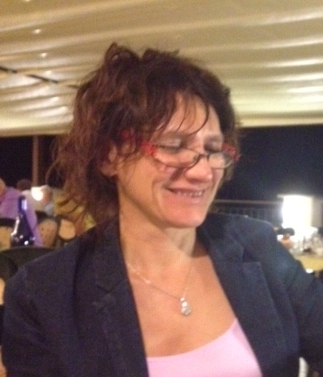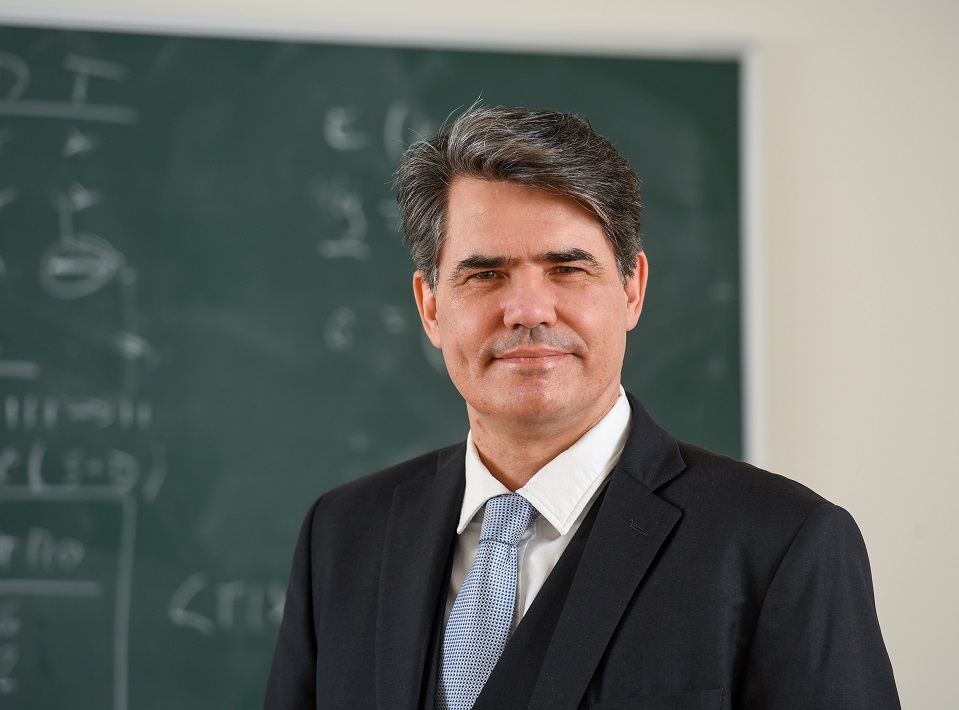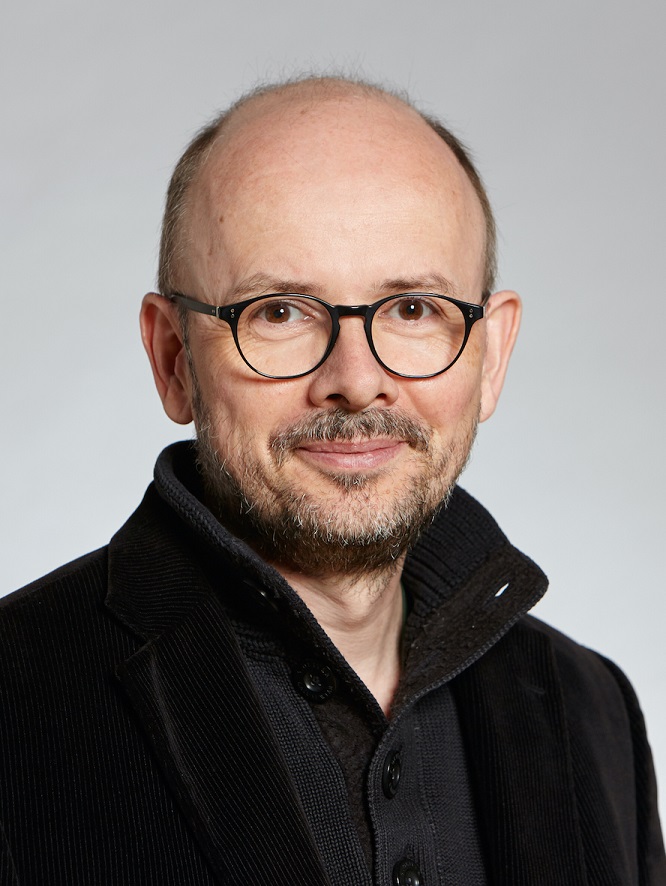Welcome
Join us for this edition of the Faraday Discussion series. The Faraday Discussions are unique international discussion meetings that address current and emerging topics at the forefront of the physical sciences.This meeting is for established and early-career scientists and postgraduate working in the area of electronic structure. It will provide an ideal forum to reflect on where the field is, and the grand challenges which remain to be tackled, in order to extend its applicability to wider communities. On behalf of the organising committee, we look forward to welcoming you to London.
George Booth and Ali Alavi
Co-Chairs
Why attend?
Find out more about Faraday Discussions in the video and FAQ – see useful links above.A unique conference format that prioritises discussion
At a Faraday Discussion, the primary research papers written by the speakers are distributed to all participants before the meeting – ensuring that most of the meeting is devoted to discussing the latest research.
This provides a genuinely collaborative environment, where discussion and debate are at the foreground. All delegates, not just speakers, are invited to make comments, ask questions, or present complementary or contradictory measurements and calculations.
An exciting programme of talks – and more
Take part in a well-balanced mix of talks, discussion, poster sessions and informal networking, delivered by our expert events team. You can explore the full programme in the downloadable files above – whether you’re attending in-person or online, every minute provides an opportunity.
The conference dinner, included in the registration fee, contains the Marlow Cup ceremony: a unique commemoration of past Faraday Discussion organisers that is sure to encourage further discussions over dinner.
In-depth discussion with leaders in the field
World-leading and established researchers connect with each other and early-career scientists and postgraduate students to discuss the latest research and drive science forwards. It’s a unique atmosphere – and challenging others to get to the heart of the problem is encouraged!
“I vividly remember chairing a Discussion where an early career researcher asked a phenomenally simple but brilliant question that totally disarmed a highly experienced and celebrated electrochemist. Those few seconds of silence and tension illustrate perfectly the magic of Faraday Discussions at their very best!”
Professor David Fermin, Faraday Standing Committee on Conferences
Your contributions, published and citable
A citable record of the discussion is published in the Faraday Discussions journal, alongside the research papers. Questions, comments and remarks become a valuable part of the published scientific conversation, and every delegate can make a major contribution.
Discover London
The Discussion will take place at Burlington House, right in the very heart of London. Step out to see the sights while you’re here – or stay a few extra days to explore the city and the surrounding area.
Format
Faraday Discussions have a special format where primary research papers written by the speakers are distributed to all participants before the meeting, and most of the meeting is devoted to discussing the papers. All delegates at the meeting, not just speakers, have the opportunity to make comments, ask questions, or present complementary or contradictory measurements and calculations during the discussion sessions. In addition, there is a dedicated poster session where further discussion takes place. The research papers and a record of the discussion are published in the journal Faraday Discussions.Themes
In electronic structure for realistic systems, we are lucky that the equations governing the observable properties of molecules, materials and their reactions are known, from the nature of their interacting quantum-mechanical constituents. However, these equations are unfortunately insoluble in general, and their approximate, yet accurate and scalable numerical solution has long been sought after. Progress in this field holds the promise of widespread impact in the predictive computational determination of molecular properties, unique insight into reaction pathways and intermediates, the inverse design of materials, and much more. Innovative and emerging methods for the numerical solution to these equations have long outstripped the ability of brute force approaches, with a diversification and combination of approaches key to the developments in the field. These have allowed theoreticians to model ever larger systems, with increasingly reliable accuracies.However, there are still a growing number of systems where the resolution necessary for predictive accuracy, key insights and the guiding of experimental design still alludes us, particularly in cases where the electronic correlation is strong and the standard approach of density functional theory is uncertain. These arise in an increasingly documented set of cases, ranging from bond-breaking, heterogeneous catalysis, and electronic excitations. We will therefore look towards the prospects and directions in post-mean-field electronic structure theory, discussing some of the main emerging paradigms for realistic electronic structure in both molecular and materials settings for these more demanding electronic structure cases. These directions will be set in the context of outstanding challenges, current limitations and experimental needs in the field, and will be focused into the following four (inter-related) research themes:
Novel perturbative and variational methods for stronger correlations
Perturbation theory and variational principles are two of the most important (arguably even the only) tools that a many-body quantum theorist has at their disposal, with new approaches exploring different functional forms, self-consistent schemes, or partitionings of the problem in different situations.We will discuss the importance and prevalence of stronger correlation in quantum chemistry and ab initio materials, and how this can be well described within current and emerging paradigms. Importantly, there are needs to effectively combine perturbative and variational schemes once a strongly correlated subspace is identified. There are a number of potential issues with existing approaches in this area, and questions remain as to the best approaches in the future. The session will frame the challenge of stronger correlation effects, on which many approaches in the overall programme will rest.
Magnetism and spin physics
Strong spin fluctuations are known to mediate the effective interactions in systems from biological active sites, to molecular magnets, nanoparticles and anti-ferromagnetic materials. At the heart of this problem is a many-body problem of interacting spins, but to what extent this spin problem can be isolated from the rest of the correlated charge dynamics in real systems remains an open question. Does this challenge of spin physics require a different approach to treating the rest of the correlated problem, and are there advantages to particular representations of the problem? We will investigate the challenge of magnetism in correlated electron problems from both a physical and methodological perspective, in cases of large isolated local spin moments, as well as cases where many local moments couple together. Questions as to the scope of strong spin fluctuations in ab initio modelling will be framed in the context of the overall discussions, as well as the challenge of magnetism and spin physics in the wider field.
Stochastic and low-scaling approaches for quantitative accuracy and beyond ground states
New representations and exploitation of structure in the quantum variables of a theory can lead to significant computational benefits which broaden the scope of a method and lower complexity, while retaining a high degree of accuracy for realistic hamiltonians. These build on principles such as locality, sparsity or low-rank of the interacting physics in different domains and representations. Stochastic approaches are growing in prevalence in ab initio applications, as well as increasingly efficient and accurate low-scaling methods to access large system sizes. But what are the frontiers and these approaches, and what are the outstanding challenges as they are pushed to ever larger systems and the corresponding emergent physics? How has the prominence of machine learning in the field changed the prospects of electronic structure methods, and what are the new approaches emerging which can take the applicability of these methods to the next level? These questions will be discussed through the lens of the wider physical challenges which are still outstanding in the field, focussing on the niche of application for each of these methods, and the synergies between them.
Extended and condensed phase systems
Quantum chemical approaches have been known to be dismissed by some as too computationally costly and high-scaling for application to extended systems and the condensed phase. However, we know that this is changing, with the successful application of an increasingly large repertoire of correlated methods in ab initio materials science. However, we have long known that ‘more is different’, and to what extent can we port models designed for molecular systems to the solid state? What new challenges emerge from treating large-scale extended systems, e.g. metals, screening, phase transitions, in challenges which don’t traditionally arise in molecular contexts, and what ramifications does this entail for the methodology which we should apply? What is the ‘value-added’ for explicitly correlated methods in this domain? Furthermore, the shifting emphasis from experimentalists and ‘users’ in the field to quantities such as spectral functions and dynamical response poses additional challenges in these hard to simulate properties. In this session, we will discuss the prospects for adoption of correlated methods and the methodological changes required to get around both the technical challenges, and changing physical phenomena. We will discuss multi-resolution and multi-scale approaches in the field, and how combining different approaches discussed can lead to progress in the field.
tings that address current and emerging topics at the forefront of the physical sciences.
Useful links
Downloads
- Programme
- Preprints session 1 - Novel perturbative and variational methods for stronger correlations
- Preprints session 2 - Stochastic & low-scaling approaches for quantitative accuracy & beyond ground
- Preprints session 3 - Stochastic and low-scaling techniques/Extended systems
- Preprints session 4 - Session 4: Correlation in extended systems












